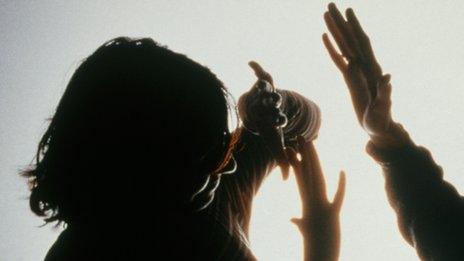Domestic violence: Former police chief Judith Gillespie turns TV investigator
- Published
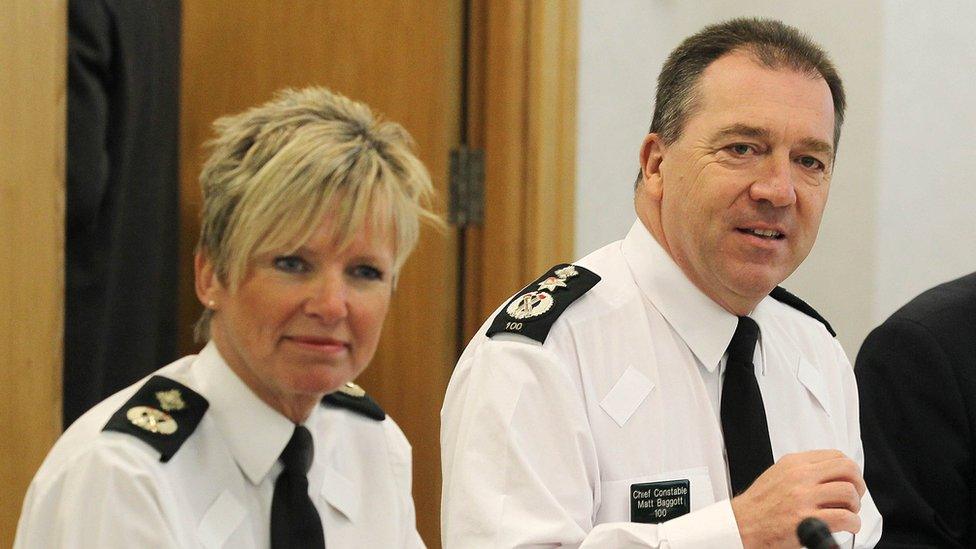
Judith Gillespie, pictured with former chief constable Matt Baggott, served in the police for 32 years
Thirty-two years of policing in Northern Ireland exposed me to all sorts of sensitive and challenging situations, including the most serious and violent of crimes.
But there are few areas of crime, in my experience, where the police approach has changed so radically than in domestic abuse.
For me, it was always an area of crime that struck at the very heart of community safety - if you can't feel safe in your own home, where and when can you ever feel safe?
It was an area of huge complexity, where the response needed to be joined up and effective and it was a crime that affected so many people, not just the obvious victim, but the hidden victims too - children.
It was also an area that did not discriminate; anyone could be a victim and anyone could be a perpetrator.
So I jumped at the opportunity to make a television programme on a subject so close to my heart.
The focus of the documentary is on women as victims and survivors, but that is not to say that violence against men does not happen.
In a 40-minute documentary, it was impossible to cover every aspect of this complex and deeply personal crime.
Three remarkable women told me their stories in detail, and without their courage to appear on camera, the documentary would not have been possible.
I spoke to a perpetrator of domestic abuse who also chose to tell his story, without disclosing his identity.

Northern Ireland police get a call about a domestic incident every 19 minutes
He was undergoing a programme which sought to help him address his violent behaviour before the matter reached court. And I spoke to representatives from some of the agencies working directly with victims and perpetrators.
It is clear to me that while there has been huge progress, the journey of responding to domestic abuse is far from over. Official police figures show that more and more victims are coming forward.
There is now a domestic incident reported to the PSNI every 19 minutes.
Society and, importantly, professionals have learnt more about this phenomenon, and policy and laws have changed.
More and more victims are pointing to emotional abuse in the form of totally unreasonable and controlling behaviour by perpetrators, with some saying that the long term psychological effects of such abuse are as grave as physical assault.
However, unlike in England and Wales, the law in Northern Ireland has not yet specifically recognised coercive and controlling behaviour. The programme highlights other discrepancies in protections for victims here compared to other parts of the UK.
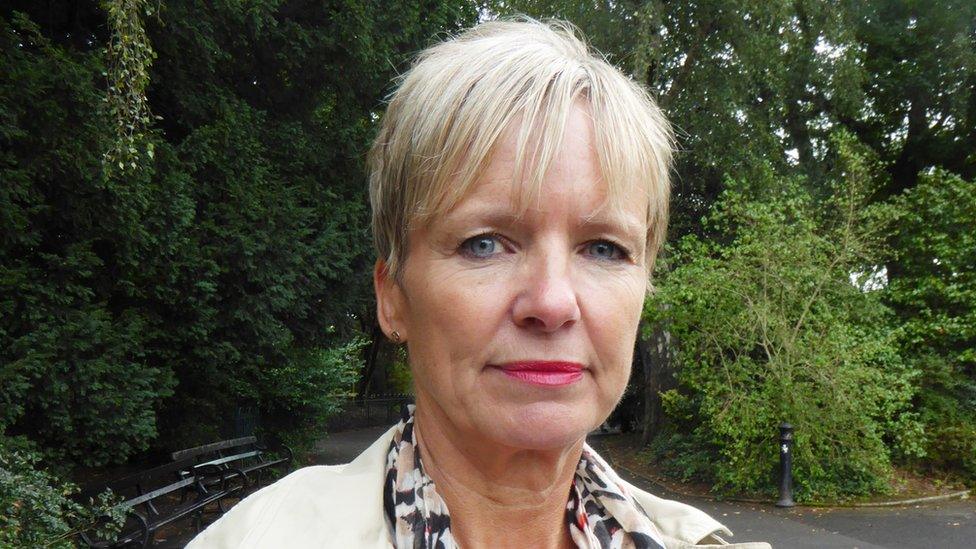
The former senior police officer spoke to both victims and perpetrators of domestic abuse for the programme
Much has been said about domestic abuse, but in my view there could never be enough said about a crime which has been hidden for generations, and the full extent of which we may never truly know.
I wanted to highlight that there are many avenues of help and support for those suffering domestic abuse, that our laws need to catch up with developments elsewhere, and finally that children need to know what healthy and appropriate relationships look like.
If this programme achieves nothing other than delivering these three messages, it will have been a success.
Gillespie investigates... Domestic Terror is on the BBC Iplayer
- Published13 October 2016

- Published14 October 2016
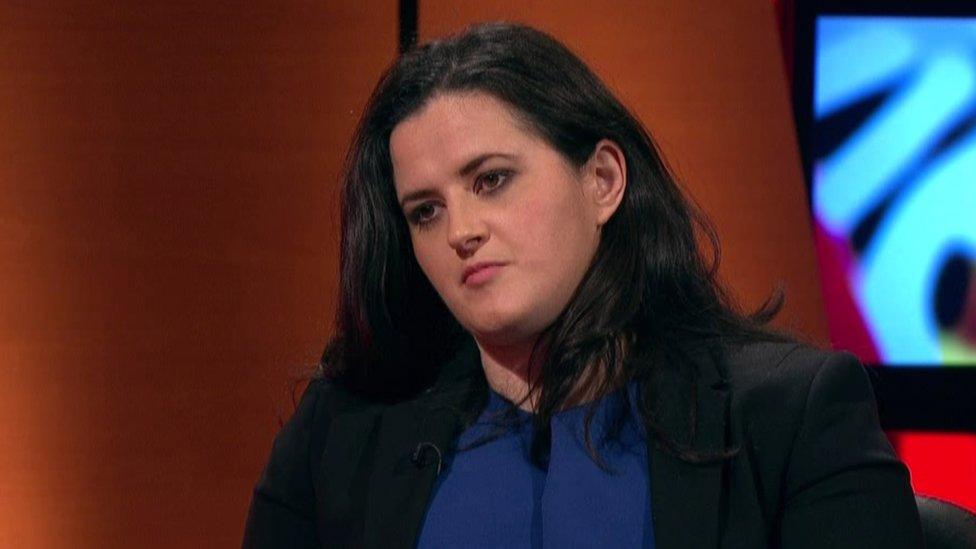
- Published21 January 2016
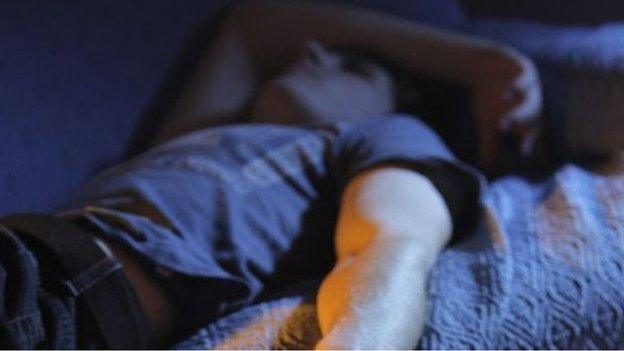
- Published29 October 2013
